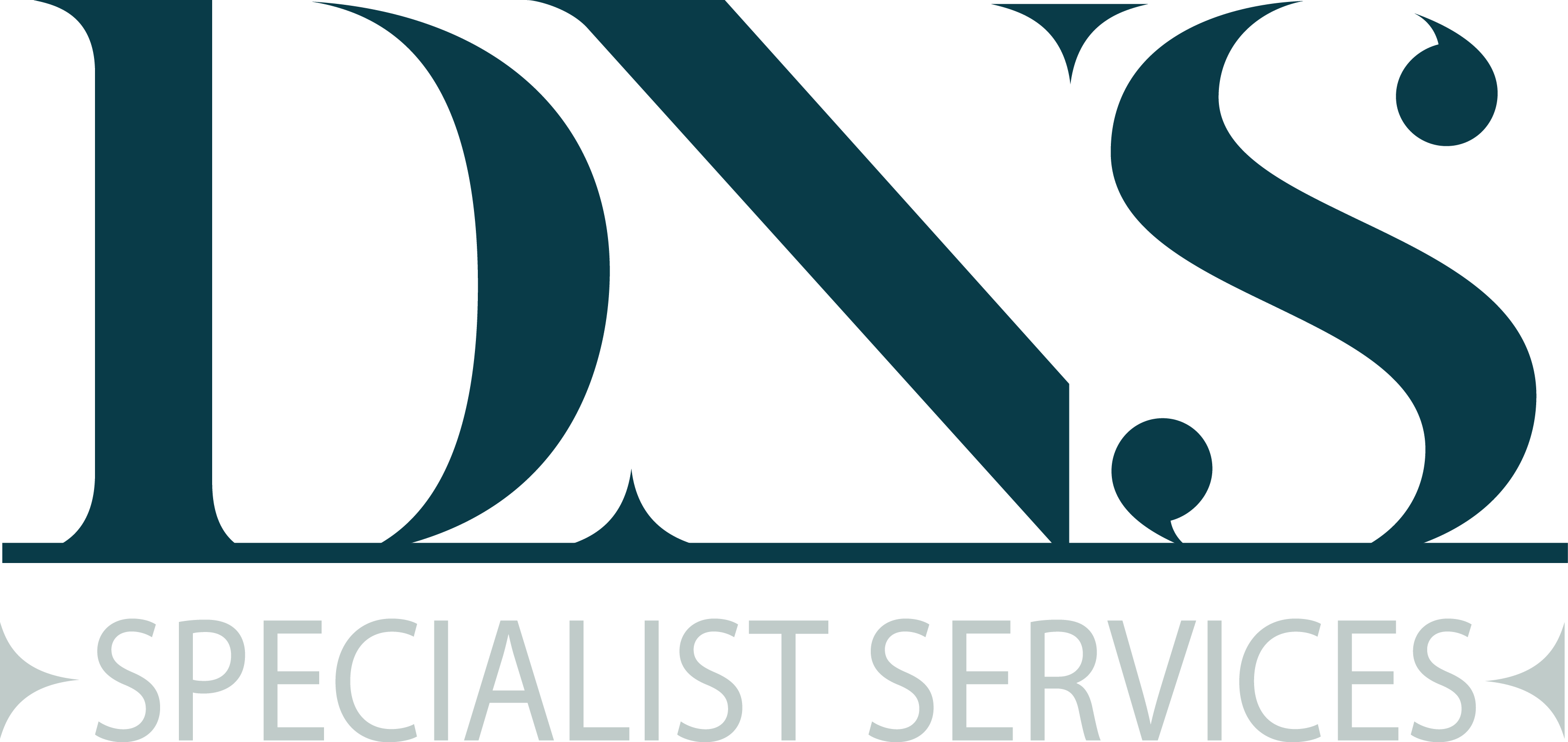Beyond the Headlines: Why This March 31 Matters More Than Ever

If it feels like the word “AUSTRAC” has been on repeat for the last six months, you aren’t imagining things. For the latter half of 2025, regulatory reform has dominated the news cycle, moving from niche industry discussions to mainstream headlines. But while the media buzz has focused heavily on the what and the when of these reforms, there’s a more pressing question for General Managers and Boards: Are we actually ready? March 31 is fast approaching, a date that is circled in red on every compliance calendar. Traditionally, this is simply the deadline for lodging your Annual Compliance Report. This year, however, it carries far more significance. With the reforms announced in August and the rolling changes throughout late 2025, lodging your report is no longer a routine administrative step, it’s a statement of your venue’s compliance and integrity. Regulators now demand proof, not promises. A policy on a shelf doesn’t satisfy today’s standards. Compliance programs must be actively managed, fully understood by staff, and clearly effective at preventing financial crime. Completing your Annual Compliance Report is no longer a routine task, it is a public declaration of your venue’s integrity. Without independent validation, even small gaps can become serious breaches. This is where the Independent Audit becomes your most valuable tool. The Compliance Report captures your venue’s compliance on paper, but the Independent Audit ensures it stands up in practice. By reviewing systems and processes against current legislation, an audit highlights areas for improvement before they escalate into compliance breaches, giving Boards and management confidence in their program’s effectiveness. If you haven’t locked in your Independent Audit yet, the window is closing. March 31 will be here before we know it, and the last thing anyone needs is a rush to the finish line. At DNS Specialist Services, we make this process seamless. We help you navigate the complexity of the new reforms and provide the independent assurance you need to sign your reports with total confidence. If you haven’t already engaged an auditor, now is the time to reach out. Take one minute to send us an email at info@dnsss.au, or reach out below, and we’ll take care of the rest.
Strategic Planning: How to Turn Motion Into Real Progress

In the hospitality industry, “busy” is often worn as a badge of honour. We confuse full calendars and tired feet with progress. But there is a difference between movement and direction. You can run at a million miles an hour, but if you’re running in a circle, you’re just burning fuel. For many venues, the day-to-day challenges of staffing, supply chains, compliance, endless operational demands can absorb every bit of energy. It’s no wonder so many leadership teams find themselves reacting rather than steering. Strategic planning is the discipline of stepping off the treadmill. It’s the moment you lift your head above the noise and check that all the hard work is taking you somewhere new. Real progress begins with clarity. When your Board sets a sharp, meaningful vision, it becomes a compass for the entire organisation. Your mission and values transform from words on a wall into the filter that shapes decisions, behaviour and culture. And when your team is aligned and confident, customers feel it the second they walk through the door. Meanwhile, the world outside your venue is shifting, and fast. You’re no longer just competing with the club or restaurant down the road. You’re competing for a slice of someone’s leisure time. Whether it’s dining out, hitting a festival, or staying home with Netflix, the battle for “share of wallet” has become a battle for attention and relevance. Staying ahead requires thinking creatively, which is difficult when your focus is, rightly, on daily operations. That’s where collaboration becomes a catalyst. Partnering with external specialists brings fresh perspective, future-focused thinking and the freedom to challenge assumptions. Combine that with your team’s passion and deep knowledge of your venue, and you unlock a strategic force that can genuinely move the needle. This kind of approach also reshapes how you show up in your community. Many venues are doing extraordinary work supporting local sport, backing charities, and hosting events, yet much of it goes unseen. A strong strategy helps you own your narrative and positions your venue not just as a facility, but as a vital part of the community fabric. It’s also about resilience. Leaning on a single revenue stream is a risk modern venues can’t afford. From repurposing unused spaces to embracing smarter technology, diversification is what turns a good year into a sustainable future. If your current strategic plan feels like it belongs to another era, it may be time for a reset. Strategy shouldn’t be a document that gathers dust, it should energise your Board, inspire your team and guide every step forward. Let’s stop running in circles and make 2026 the year your momentum finally matches your direction. If you’re ready for a fresh perspective, we’re here to help: info@dnsss.au
When Loyalty Becomes Liability: AML/CTF Lessons from Australia’s Landmark Gambling Case

A recent Federal Court case against several of Australia’s largest online betting operators has placed a spotlight on a growing regulatory risk across the gambling sector: the dangerous intersection of VIP loyalty programs, weak AML/CTF controls, and inadequate harm-minimisation frameworks. At the centre of the case is a former financial planner who developed a severe gambling disorder and funded his betting through the misappropriation of client funds. While criminal responsibility for those actions is clear, the civil proceedings raise a critical question for regulators and industry alike: what obligations do betting operators have when red flags are visible, repeated, and ignored? AML/CTF Is Not Just a Box-Ticking Exercise Under Australia’s AML/CTF framework, wagering operators are required to understand their customers, monitor transactions, and make reasonable enquiries into the source of funds – particularly when gambling activity escalates rapidly or appears inconsistent with known income. In this case, betting activity reportedly reached tens of millions of dollars while the customer’s declared income remained modest. Yet meaningful intervention was delayed or absent. Regulators had already found licence breaches for failing to identify problem gambling behaviours, reinforcing that KYC and ongoing customer due diligence must be dynamic, not static. VIP Programs: High Revenue, High Risk VIP loyalty programs are designed to retain high-value customers, but they also represent a concentrated AML/CTF and consumer harm risk. Evidence in the case suggests VIP managers offered inducements, bonuses and personalised incentives that encouraged continued gambling despite clear warning signs. Where staff remuneration is linked to customer losses, the risk becomes structural. Commission-based incentives can undermine internal controls by discouraging intervention, escalation, or account restrictions—directly conflicting with AML/CTF and responsible gambling obligations. Harm Minimisation and Financial Crime Are Interconnected This case highlights a reality regulators increasingly recognise: financial crime risk and gambling harm are not separate issues. Excessive gambling, unexplained wealth, and compulsive behaviour often coexist, and effective compliance programs must address both simultaneously. Failure to intervene does not just expose organisations to regulatory penalties – it creates legal, reputational and ethical risk, particularly where stolen or illicit funds are involved. What Good Governance Looks Like For gambling operators, this case serves as a clear warning. Effective frameworks should include: A Turning Point for the Industry If successful, this legal action may reshape how loyalty programs operate across the sector and reinforce regulators’ expectations that profit cannot come at the expense of compliance or consumer protection. For organisations operating in regulated environments, the message is clear: loyalty must never override responsibility. Strong AML/CTF controls, combined with genuine harm-minimisation practices, are no longer optional – they are essential.
Is Your Club’s Constitution Helping or Hindering You?

The underpinning values of every community club is constructed in their constitution. Yet for many boards, this vital document gathers dust in a filing cabinet, quietly shaping decisions without being actively reviewed. Just like a solid building needs strong foundations, a well-structured Constitution can make or break your club’s future success. The Problem With Too Many (or Too Few) Leaders Imagine steering a ship with too many captains – or worse, captains who change every few months. Many clubs find themselves in this position, and the result is more than just frustration – it can limit growth opportunities and undermine your venue’s success. Too many board members: Decision-making slows, debates drag out, and clear direction gets lost in the noise. Rapid Board turnover: By the time new members find their feet, their term ends. Fresh faces bring new ideas, but also bring constant shifts in priorities, making it almost impossible to deliver long-term strategy. For hospitality venues, where consistency and strategic planning are key, these governance issues can stall growth and create confusion. Finding the Right Balance A strong Constitution strikes a balance: The right board size – big enough for diverse views, small enough for efficient decision-making. Longer, staggered terms – giving members time to make meaningful contributions while ensuring continuity. This structure provides stability, allowing your board to set a clear vision, stick to it, and see results over time. Why Skills Matter as Much as Structure It’s not just about how many people sit at the table – it’s about who they are. A well-rounded board can be a game-changer for your club. Diversity in demographics, open-mindedness and a broad range of skills are key to success. When your Constitution supports the right mix of skills and experience, your board becomes a powerful asset rather than a bottleneck. Time to Review Your Constitution? if your Constitution hasn’t been reviewed in years, it may not only be holding your venue back but also not fully addressing your obligations. A modern, fit-for-purpose Constitution ensures your governance framework actively supports growth, compliance, and long-term success. At DNS Specialist Services, we work with clubs to review, update, and strengthen their Constitutions. The result? A governing document that’s clear, practical, aligned with your goals and protects the organisation. Ready to make sure your club’s foundation is as strong as your future? Let’s chat about a Constitution review today.
Future-Proof Your Club’s Governance: A Smarter Way for Pubs & Clubs to Prepare for the Year Ahead
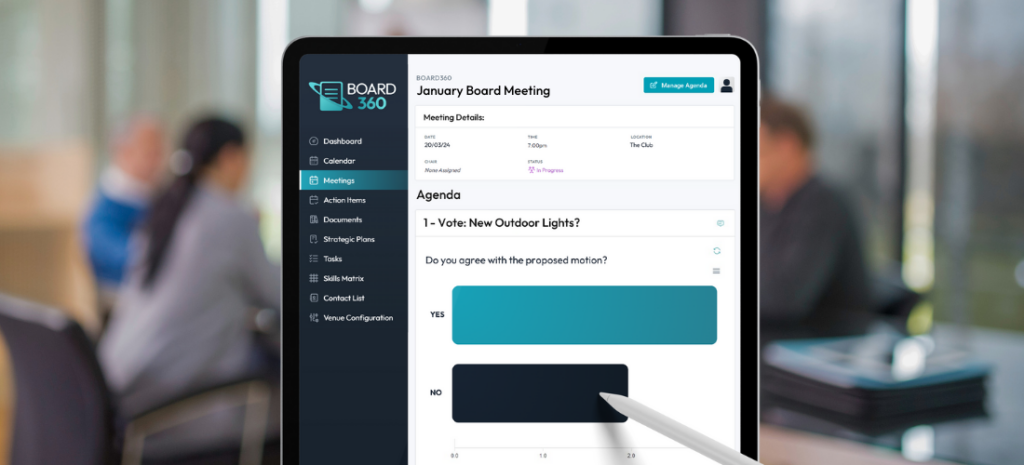
Looking Back – and Preparing for What’s Next As the year winds down and venues move into another busy summer trading period, club and pub leaders naturally start looking in two directions – reflecting on what’s been achieved and preparing for what’s next. Reflection matters, but in an industry where compliance demands, community expectations, and operational risk continue to rise, preparation matters even more. The Rising Governance Pressure on Australian Hospitality Across Australia, boards and committees in the hospitality sector are facing growing layers of responsibility. Liquor and gaming compliance, harm minimisation requirements, WHS obligations, community contributions, audits, and increased expectations of transparency all place significant pressure on leadership teams. This raises a critical question: are your current governance systems strong enough to support the future of your venue, or are they quietly holding it back? The Risk of Patchwork Governance For many clubs and pubs, governance still operates through a patchwork of disconnected tools and habits: strategic plans stored in folders, policies spread across desktops, outdated versions buried in emails, and meeting papers lost in inboxes. Committee handovers often rely heavily on memory, which introduces further risk and inconsistency. These methods once worked – but they’re no longer fit for purpose. In today’s environment, a single missed update, unclear action item, or documentation gap can cause compliance issues, operational confusion, or reputational damage. A Better Way Forward Imagine your board, management team, and committee members accessing one secure system containing everything that matters – strategic plans, minutes, compliance records, audit documentation, skills registers, incident-related policies, and legislative updates. A system designed specifically for the realities of Australian clubs and pubs. This is exactly what Board360 delivers. Built for the Hospitality Sector Board360 is designed to transform the way venues manage governance by addressing the everyday challenges that slow down decision-making and increase risk. Dynamic Strategic Planning Your strategic plan becomes a living tool, not a forgotten document. With the Strategic Plan Tracker, goals stay visible and progress stays measurable. Fast and Consistent Committee Onboarding Committee turnover is common. Board360 lets new members access the documents, history, and processes they need from day one. Issue a login and onboarding becomes seamless. Streamlined Policy and Procedure Management No more chasing versions or guessing which policy is current. Whether it’s RSA, gaming harm minimisation, WHS protocols, constitutions, by-laws, or incident reporting procedures, everything stays organised and up to date. Smarter Meeting Management Board360 centralises agendas, board papers, minutes, and action tracking. Whether it’s a monthly meeting, AGM preparation, or compliance committee session, you reduce admin time and avoid missed follow-ups. Clear, Confident Compliance Oversight With tools like a real-time Skills Matrix for Boards and Management Teams, transparent decision history, and legislative updates, your venue stays audit-ready and accountable. Solving Real Challenges for Clubs From gaming compliance to liquidity reporting, from incident handling to community contributions, hospitality venues face unique operational pressures. Board360 helps reduce: It turns governance from a stress point into a strategic advantage. Is Your Venue Ready for the Year Ahead? As you plan for the coming year, take a moment to consider whether your current governance systems are supporting your club’s future – or quietly limiting it. The future of governance in hospitality is digital, transparent, secure, and integrated. Venues that modernise now will be best positioned to lead and succeed. Take the Next Step If you’d like to see how clubs and pubs across Australia are using Board360 to simplify governance, strengthen compliance, and support better decision-making, visit https://dnsss.au/services/governance/board360-coporate-governance-portal/ to book a walkthrough and future-proof your venue for the year ahead.
Navigating the Evolving Landscape of Harm Minimisation and AML/CTF in Hospitality
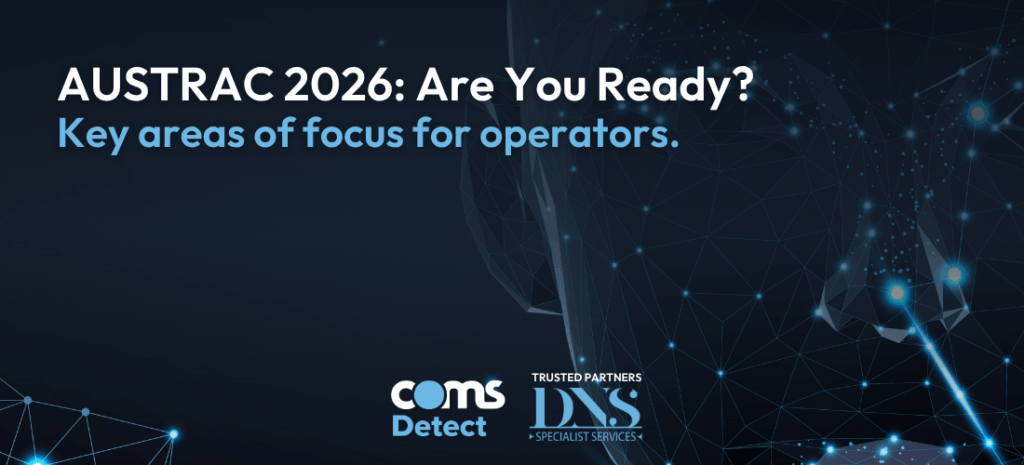
The goalposts are shifting for pubs and clubs when it comes to harm minimisation and preventing financial crime. With AUSTRAC’s 2026 AML/CTF reforms on the horizon, venues are facing a significant overhaul in how they approach risk management, customer due diligence, and ongoing monitoring. This isn’t just about ticking boxes; it’s about building a robust, tailored framework that protects your patrons, your business, and your reputation. The upcoming changes, rolling out from March 31, 2026, and further in July 2026, demand a proactive stance. AUSTRAC is clearly signalling heightened scrutiny, particularly around large cash transactions, electronic gaming machine activity, and the ongoing monitoring of high-risk individuals. We’ve all seen the headlines – the substantial penalties imposed on major players like Crown Casino and the ongoing proceedings against others. The message is clear: the stakes are higher than ever. So, what does this mean for you? A Deeper Dive into Due Diligence and Risk The reforms are bringing a more thorough way of getting to know your customers. While the requirement to identify customers for transactions above $10,000 will shift down to $5,000 in 2029 (lining up with international guidelines), the immediate focus is on a two-step process. First, you’ll need to identify and assess the risk of a patron before they use your services. Then, there’s ongoing observation throughout your relationship with them. It’s all about really understanding your patrons, gauging their risk level, and responding appropriately. For those who are lower risk, the process can be simpler, but for higher-risk individuals – such as foreign public officials or anyone showing suspicious behaviour – you’ll need a more detailed approach. Your AML/CTF Program itself will need a significant refresh. Gone are the days of generic templates. AUSTRAC now expects a truly risk-based approach, where your program specifically addresses the unique money laundering and terrorism financing risks inherent to your venue, your customer base, and your operations. This requires a thorough risk assessment that goes beyond a superficial overview. Technology as a Partner in Harm Minimisation This is where innovative solutions prove incredibly valuable. Beyond strengthened AML/CTF programs, advanced facial recognition technology (FRT) is a powerful tool for elevating harm minimisation and compliance. Venues are now able to proactively identify individuals who have self-excluded or those known to pose a risk to themselves or others – moving from reactive measures to informed, early intervention. DNS Specialist Services is proudly partnering with Coms Detect, bringing cutting-edge FRT solutions that integrate seamlessly into your venue’s existing security infrastructure. This partnership highlights our unwavering commitment to harm minimisation, providing technology that precisely assists in identifying individuals of interest and empowering your staff to intervene earlier and more appropriately. It’s not about negative surveillance; it’s about equipping your team with the essential tools to foster a safer environment and to more effectively uphold your social responsibility obligations. This proactive identification is a true game-changer in managing risk and ensuring unwavering compliance, helping venues navigate the evolving regulatory landscape and set new standards for patron safety. Staying ahead of the 2026 reforms and truly enhancing your harm minimisation efforts requires proactive planning and the right partnerships. Ensure your venue is not just compliant, but also operating at the forefront of patron safety. DNS Specialist Services provides the expertise and solutions you need. Explore our full range of AML/CTF audit and review services, and discover how our partnership with Coms Detect can strengthen your approach to harm minimisation.
A New Era in Harm Minimisation: DNS Specialist Services and COMS Partner to Deliver Facial Recognition Technology
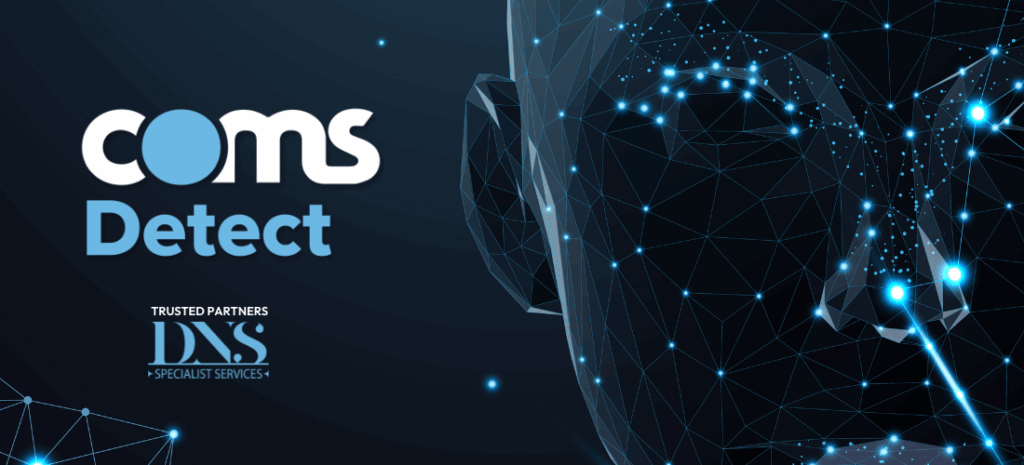
The gambling and entertainment industry continues to evolve, and with it comes a pressing responsibility: to prioritise harm minimisation and safeguard vulnerable patrons. At DNS Specialist Services (DNS SS), we have long recognised the importance of equipping venues and staff with the tools they need to meet this challenge. Today, we are proud to announce a new partnership with COMS, a trusted leader in operational solutions for the sector, to bring advanced Facial Recognition Technology (FRT) to the market. Why Facial Recognition Technology Matters Facial Recognition Technology has emerged as a critical tool in the global effort to support safer gambling environments. With the ability to identify excluded or at-risk individuals swiftly and discreetly, FRT provides staff with confidence and actionable insights to better manage harm minimisation responsibilities. This is not about surveillance, it is about protection, responsibility, and care. DNS SS and COMS: A Powerful Partnership DNS SS, under the leadership of Managing Director Danny Nixon-Smith who also serves on the Safer Gambling Advisory Committee and represents the industry across multiple jurisdictions brings deep expertise in harm minimisation, regulation, and industry standards. COMS complements this with its reputation for delivering robust, scalable, and user-friendly operational systems. Together, we are delivering solutions that don’t just meet compliance requirements but set new benchmarks for effectiveness and practicality in frontline operations. Supporting Staff in a Changing Landscape The gambling sector is experiencing rapid change, from heightened regulatory scrutiny to growing societal expectations. Staff are at the heart of this change, and they need the right tools to succeed. By integrating DNS SS’s industry insight with COMS’s technology platform, we are empowering venues with advanced, reliable, and ethical tools to meet their harm minimisation obligations head-on. Looking Ahead As this partnership evolves, our shared goal is simple: to continue innovating and supporting venues, staff, and communities in building safer gambling environments. Facial Recognition Technology represents the next step in this journey a step we are proud to take alongside COMS.
We’re Hiring – Marketing Manager

DNS Specialist Services is a consultancy firm dedicated to the Australian hospitality, gaming and leisure industries. We’re an energetic, passionate team who live and breathe hospitality. We pride ourselves on generating real outcomes for our pub, club and casino clients across QLD, NSW, VIC, TAS and NT – and with our portfolio growing rapidly, we’re ready to expand our leadership team. We’re looking for a Marketing Manager who can combine strategic thinking with hands-on marketing expertise, and who thrives on building relationships with clients while guiding a talented team to deliver great results. What you’ll be doing As a Marketing Manager, you will: This is not just a “make the posters and send the emails” role – it’s about consulting with clients, managing accounts, and steering strategy while still staying close enough to the creative to keep things fresh and fun. What you’ll bring What you can expect If you’re ready to step into a role where you’ll drive strategy, manage client relationships, and lead a growing marketing team, we’d love to hear from you. Send us your CV and a cover letter showing us why you’re the Marketing Manager we’ve been waiting for!
When Data Governance Becomes a Boardroom Challenge

In today’s digital-first environment, data is both the most valuable and the most vulnerable asset in the boardroom. Boards are increasingly tasked with overseeing not just strategy and performance, but also the governance of data, its use, security and ethical management. For many organisations, challenges around data significance and confidentiality remain hidden until a crisis emerges: a breach, a regulatory fine or reputational damage. At that point, the problem is no longer technical, it is strategic. Boards suddenly find themselves answering to regulators, stakeholders and the public. Why Boards Struggle With Big Data According to the Data Governance Foundations for Boards report, directors often underestimate the risks. The sheer speed at which data is generated makes oversight complex. Not all data is created equal, but without effective governance, critical data is treated the same as trivial information. Policies and procedures are too often written in response to incidents rather than as a preventative safeguard. On top of this, departing board members may still retain access to sensitive data and reports, exposing the organisation to long-term risks if proper offboarding is not in place. This mindset of “it is not a problem until it becomes a problem” remains one of the greatest challenges boards face. The Case for Proactive Planning A proactive approach ensures that boards do not simply react but lead. This means establishing clear policies and procedures that define roles, responsibilities and accountability. Regular audits should be conducted to identify vulnerabilities before they escalate. A culture of data stewardship needs to exist at both executive and operational levels, and governance must be aligned with both regulatory compliance and community expectations. Just as importantly, sensitive data must be secured during board transitions, ensuring that vacating members no longer retain access to reports, strategy documents or confidential datasets. How DNS Specialist Services Helps At DNS Specialist Services, we specialise in supporting boards to strengthen their governance and oversight. We provide independent data governance audits, assist in writing policies and procedures tailored to your business, and offer practical guidance to directors so that they can meet their obligations with confidence. We also implement secure offboarding protocols for vacating board members, ensuring that confidential information does not walk out the door. We do not just help you “tick the box”. We help you build a governance framework that reassures stakeholders, protects your organisation, and allows the board to focus on strategy with confidence. If your board has not yet addressed data governance at this level, the best time to act is now before it becomes a problem. Contact DNS Specialist Services today to start the conversation.
The Mounties Wake-Up Call: Three Questions Every Board Should Be Asking
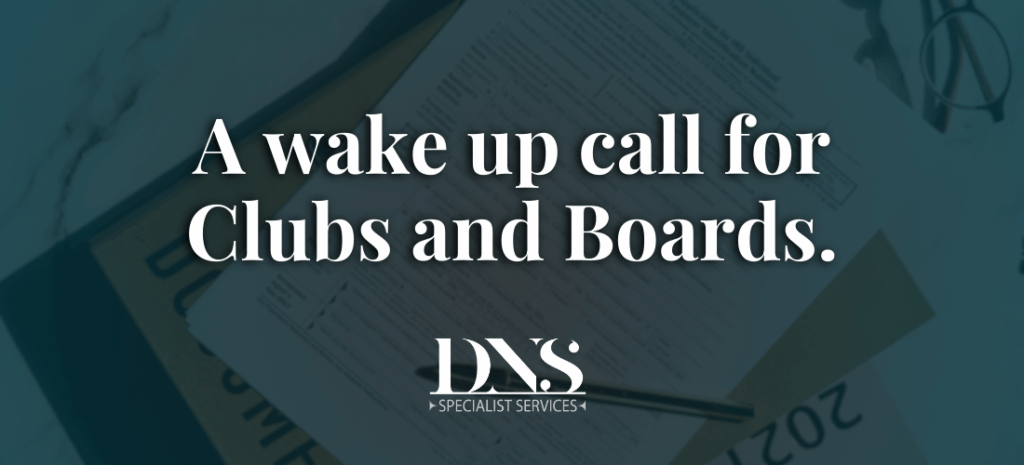
The Federal Court action AUSTRAC has launched against Mounties Group in a watershed moment for the hospitality industry. This isn’t just another regulatory breach; it’s a signal that should command the full attention of every Board and General Manager. When an organisation of that scale faces allegations of systemic failure, it proves no one is too big to be scrutinised. This heightened scrutiny isn’t happening in a vacuum. It’s a direct response to a well-documented national issue. The NSW Crime Commission’s estimate – that billions in illicit funds are washed through poker machines annually – provides all the context needed. The era of passive compliance is officially over. The new standard is demonstrable, active oversight. This new reality demands a shift in focus, prompting leadership teams to look inward and ask some tough questions across three critical areas of their operation. 1. Your AML/ CTF Program: Is It a Strategic Asset or a Delegated Task? Many venues rightly engage external experts to develop their AML/CTF program. The danger isn’t in the outsourcing of its creation, but in the outsourcing of its ownership. A program that is developed, delivered, and then left on its own becomes a significant liability. The Board and executive team are ultimately accountable. Do you genuinely understand the mechanics and commitments detailed within your program, or are you operating on the assumption that it’s simply being handled? Regulators now expect leadership to articulate their program’s strategy, not just defer to a consultant. 2. Your Risk Assessment: Is It a Snapshot in Time or a Living Document? A risk assessment is not a one-off event to be ticked and filed. Criminal threats, regulatory requirements, and even your own business operations are in constant flux. An assessment conducted last year may not accurately reflect your risk profile today. The crucial question is this: is your leadership team actively monitoring these changes and adapting your strategy accordingly? Regulators expect to see a continuous loop of assessment, adaptation, and action. A static risk assessment is a historical record; a dynamic one is a vital governance tool. 3. Your People: Is Your Team Trained, or Are They Truly Confident? A technically perfect program is useless if it’s not executed effectively on the floor. While staff training is a key component, the real metric is confidence. On a busy Saturday night, is your team – from gaming attendants to management – truly confident in their ability to identify and report suspicious matters? Or is there a culture of hesitation, a fear of getting it wrong, or a simple lack of clarity that creates an execution gap? This gap between policy and practice is where a compliance framework most often fails. The immediate lesson from this landmark case is that the definition of compliance has fundamentally shifted. It’s no longer about possessing the right documents, but about proving that active management and leadership accountability are embedded in your venue’s culture. If these questions create uncertainty, it’s a sign that a deeper review is needed. Let’s work together to ensure you are ready for the day AUSTRAC comes knocking. Connect with us for a confidential review of your AML/CTF framework or conduct a complete Harm Minimisation Program Audit.
